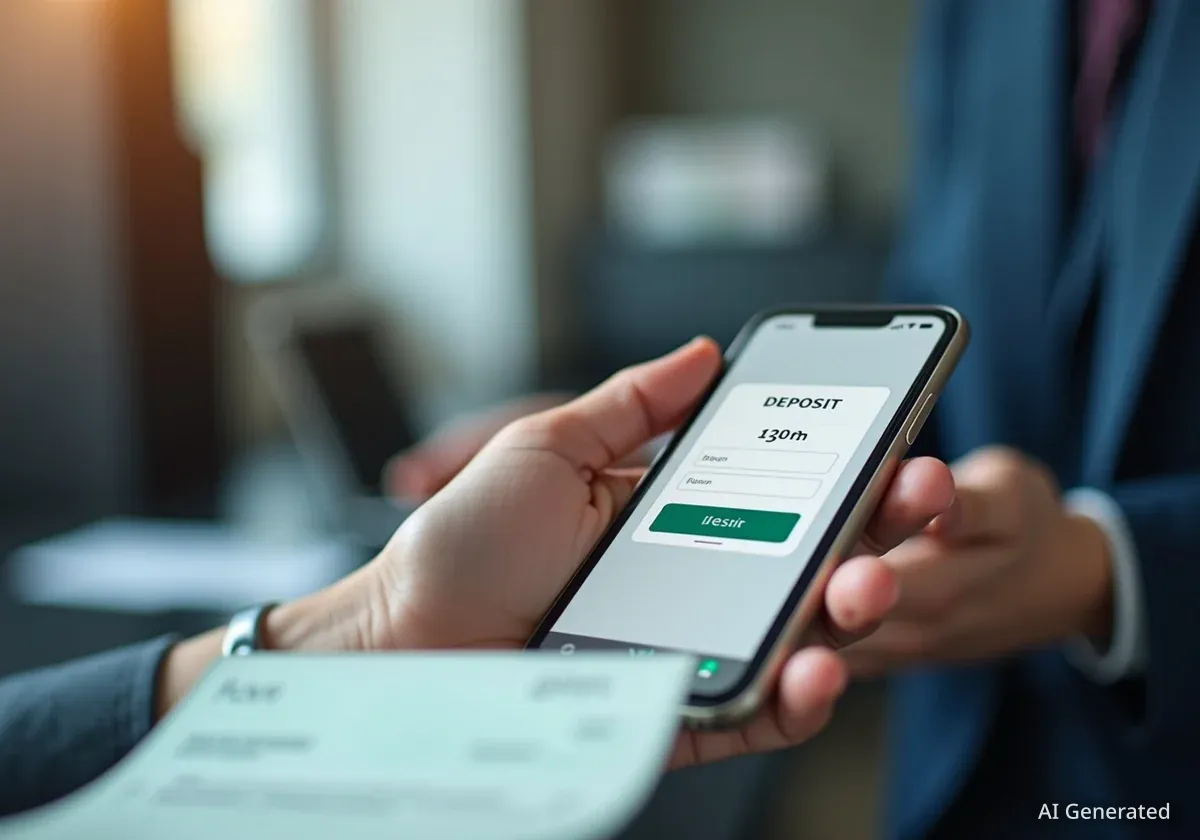New Yorkers receiving state inflation refund checks may face an unexpected challenge when trying to deposit the funds. While the paper checks from the New York State Department of Taxation and Finance are legitimate, major financial institution Chase Bank has confirmed it will not accept them through its mobile deposit feature, citing security concerns.
The policy creates a notable difference in convenience for customers, as other institutions like KeyBank and M&T Bank are allowing mobile deposits for the same government-issued checks. The situation has prompted state officials to clarify the check's legitimacy while also warning residents about potential scams targeting the relief program.
Key Takeaways
- Chase Bank is not permitting mobile deposits for New York State's inflation refund checks.
- Customers of Chase must deposit the checks in person at a branch or at a Chase ATM.
- The bank stated the policy is a security measure to protect customers from fraud.
- Other banks, including KeyBank and M&T Bank, are allowing customers to use mobile deposit for the checks.
- State officials are warning the public about scams related to the refund program.
Diverging Policies Create Customer Confusion
As inflation refund checks from the State’s Department of Taxation and Finance begin arriving in mailboxes, New York residents are discovering that their banking choice dictates how easily they can access the money. The state has confirmed the checks are being automatically mailed to all eligible 2023 taxpayers, with no application necessary.
However, a significant divergence in bank policy has emerged. Chase Bank has implemented a strict rule against accepting these specific checks via its mobile app. A spokesperson for the bank confirmed that this measure is intended to protect customers, explaining that government relief programs have historically been prime targets for fraudulent activity.
Instead of the convenience of a mobile deposit, Chase customers are required to visit a physical location. The checks must be deposited at a Chase branch or a dedicated Chase ATM, an extra step that may be an inconvenience for many.
Other Banks Maintain Standard Procedures
In contrast to Chase's approach, other major banks in the region are treating the inflation refund checks like any other standard deposit. KeyBank confirmed its customers can use the bank’s mobile app to deposit their checks without issue.
Similarly, M&T Bank verified that it is also allowing mobile deposits for the state-issued refunds. This means customers at these banks can deposit their checks from home, following standard procedures without needing to visit a physical branch.
Deposit Policy at a Glance
- Chase Bank: No mobile deposit. Must use a branch or Chase ATM.
- KeyBank: Mobile deposit is permitted.
- M&T Bank: Mobile deposit is permitted.
State Officials Address Check Legitimacy and Scams
Amid the differing bank policies, the New York State Department of Taxation and Finance has been working to reassure the public. Officials have emphasized that the paper checks are legitimate and that recipients should follow their individual bank's deposit guidelines.
"It has sent and is sending paper checks and whatever your bank’s policy is for deposit should be followed for those," said Susan Pedo, Director of Public Information at the New York State Department of Taxation and Finance.
The department is also actively warning residents about a rise in scams attempting to exploit the refund program. Scammers are reportedly contacting New Yorkers through phone calls, text messages, and emails, pretending to be from the Tax Department to steal personal and financial information.
Warning Signs of a Scam
State officials stress that the Department of Taxation and Finance will never contact you to ask for personal information to issue your refund. Be wary of any communication that:
- Asks for your Social Security number, bank account details, or passwords.
- Tells you to click a link to "claim" your payment.
- Threatens you or creates a false sense of urgency.
- Requests payment of a fee to receive your refund check.
Pedo directly addressed the issue, stating, "Scammers pretending to be the Tax Department are calling, mailing and texting taxpayers about these refund checks. We do not request any additional information or any personal information to receive your check. We are sending them directly to you."
Residents who receive any suspicious communication regarding their inflation refund check are urged to ignore it and report the incident directly to the Department of Taxation and Finance through its official website. The core message from the state is clear: no action is needed to receive the check, and any request for information is a red flag for a scam.





